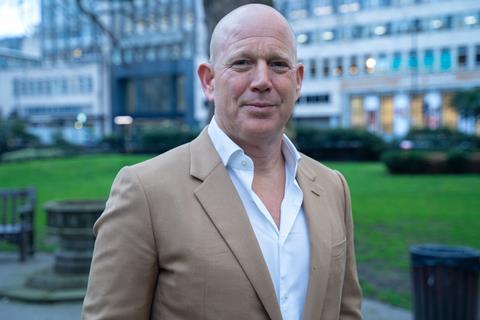Tim Levy, CEO of digital twin creator Twyn, gives his pitch as to why the media industry should embrace AI

Gen-AI continues to trend everywhere. It still dominates daily headlines more than a year after the game-changing ChatGPT was launched, and commentators, regulators, and politicians alike are still coming to grips with the tech’s potential and pitfalls.
Gen-AI can be described simply as algorithms that create new content, whether that’s audio, code, images, text, simulations, or videos.
Its use cases are almost unlimited. You can use it for novel purposes such as planning a weekend away, or for professional purposes such as automating business processes. And everything in between.
But the technology’s integration into the media and entertainment business is lagging behind, mainly because many in the industry remain highly sceptical.
Its critics point to the detrimental effects Gen-AI could have on the industry. Many actors, writers, and production crew believe Gen-AI could take their jobs and produce unsolicited deep fakes, such as the recent high-profile cases involving Taylor Swift and Joe Biden.
It’s why the recent writers’ and actors’ strikes took place, and why three in four workers don’t trust the tech, according to Statista.
Of course, I understand the concerns. In our AI firm, we closely collaborate with celebrity talent and they often inquire, ‘Will AI hurt my brand?’ or ‘Will it manipulate my words, affecting my reputation?’ It’s a consequence of a common misconception that Gen-AI can only replicate and reproduce, leading to fears of inauthentic content and reputational risks from unpredictable material.
As a result of this, the foundations are being laid for restrictive regulation that could muzzle Gen-AI’s potential. The worst-case scenario is that the ground-breaking technology won’t take off at all — which, to me, would be a big missed opportunity.
Something needs to change. The entertainment industry is crying out for innovation. The Hollywood Reporter recently questioned whether 2023 was the worst in Hollywood’s history while GQ reported instances of VFX workers calling the industry “slavery”—a result of oversaturation, budget cuts, and production crunches as studios catch up with pandemic-induced backlogs.
The problem is a lack of education.
Most people think about AI in film and TV in a technical context. And while AI can streamline the editing process and strengthen VFX capabilities, this is driving fears over job cuts.
Where I see the biggest opportunity is Gen-AI reinventing how audiences can interact with their favourite content and celebrities.
Gen-AI can be utilised as a collaborative tool to enhance human-made content rather than replace it. That’s exactly where I see it transforming the entertainment industry for the better.
We’re already starting to see this take place. Take the Oscar-nominated rom-com Barbie for example. The film’s marketing team understood that billboard and television adverts no longer cut it alone and therefore tapped into the demand for highly personalised interactive experiences. They launched an online selfie generator where fans could create avatars of themselves blending a photo with Gen-AI. It scored big, creating huge anticipation among the film’s core target audience, playing a part in the film’s £1bn earnings at the global box office.
But this concept could be taken a step further by creating experiences that enable users to interact with celebrities without reputational risks. Gen-AI could be utilised to select and tailor pre-approved content, enabling real-time interaction with high-profile figures that is original and authentic. All content comes from the horse’s mouth, so to speak, not left over to unpredictable algorithms.
This could revolutionise the traditional build-up to a new film or TV series. Actors currently spend months on end interviewing media outlets to build anticipation for a film, often right after spending months on set. It’s tiresome and time-consuming.
But the use of Gen-AI could turn cinemagoers into the interviewers in the lead-up to a film’s release. Or people could ask actors for behind-the-scenes insights while watching their favourite TV series.
Most people in the industry still don’t realise this is possible. And until we get more actors, studios, distributors, and audiences on board, the narrative isn’t going to shift from fear and replacement to one of opportunity and enhancement.
Don’t get me wrong, it’s going to take some time before Gen-AI is widely accepted in the industry. We’re going to have to move to a world where AI use is transparently signposted to build trust and improve understanding. We’ll need regulators and trade bodies to come onboard. We might even need film and TV figureheads to come to the fore to champion the tech’s potential like Daniel Elk of Spotify did for music.
And we need to start educating players in the industry now.

Tim Levy is CEO of Twyn, a company that allows fans to speak to stars’ digital “twins” through AI tech








No comments yet